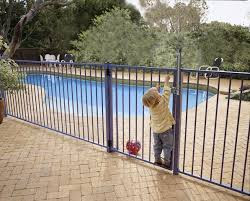May is National Water Safety Month! The purpose of this campaign is to bring into focus the importance of water safety in all types of swimming and aquatic environments. Swimming and other water-related activities are increasingly popular this time of year, so it’s helpful to be reminded of safe water practices. The American Red Cross, World Waterpark Association, National Recreation and Park Association, and the Association of Pool & Spa Professionals are partners in coordinating the awareness campaign.
Statistics make it clear how important it is to communicate
information regarding water safety. According to the Centers for Disease
Control and Prevention (CDC), from 2005-2014, there were 3,536 fatal,
unintentional drownings (non-boating related) annually in the United States.
Additionally, over 300 people die each year from drowning in boating-related
incidents. About one in five people who die from drowning are children 14 and
younger. The following recommendations will help your family have fun on the water while
staying safe.
Learn to Swim!
 Surprisingly, over 50% of Americans can't swim. Learning to swim is one
of the most important ways to prevent water safety accidents. Getting kids into formal swimming lessons can reduce the risk of drowning by 88%. Check with your local YMCA facility or swim school for a list of upcoming classes and sign up!
Adults should not only learn basic swimming skills, but should consider adding water safety training to their repertoire of parenting skills. The Red Cross offers a variety of classes and life-saving training opportunities, from first
aid to CPR. Check out some of the programs here.
Surprisingly, over 50% of Americans can't swim. Learning to swim is one
of the most important ways to prevent water safety accidents. Getting kids into formal swimming lessons can reduce the risk of drowning by 88%. Check with your local YMCA facility or swim school for a list of upcoming classes and sign up!
Adults should not only learn basic swimming skills, but should consider adding water safety training to their repertoire of parenting skills. The Red Cross offers a variety of classes and life-saving training opportunities, from first
aid to CPR. Check out some of the programs here.
Friend and Family Time
 |
| zzzzzz.... |
 |
| photo courtesy boat-ed.com |
Never leave a child unattended around the water. Appoint a responsible adult as the “water watcher” so children are monitored at all times. Stay within arm’s reach of little ones and stay focused. Remove toys from the water when the kids are not playing with them. Toys can be a powerful attraction to inexperienced or untrained swimmers. Train children in safe practices such as walking – not running – at the pool. Always brief babysitters on water safety, emphasizing the need for constant supervision. Additionally, remind those in charge that not all water accidents include splashing and noise. Relying on sound to assure safety is not adequate.
Boating
Safety Measures
Take a course and know the signs! Most states require a boating license, but even if it is not required, taking a class or two to learn about boating safety can prevent unnecessary accidents. Understanding the signs you will see along waterways, such as the various markers and signals, can prevent accidents and ensure that you have a fun and memorable experience. Check out these boating safety tips from the US Coast Guard.
Take a course and know the signs! Most states require a boating license, but even if it is not required, taking a class or two to learn about boating safety can prevent unnecessary accidents. Understanding the signs you will see along waterways, such as the various markers and signals, can prevent accidents and ensure that you have a fun and memorable experience. Check out these boating safety tips from the US Coast Guard.





No comments:
Post a Comment
Thank you for your comment!